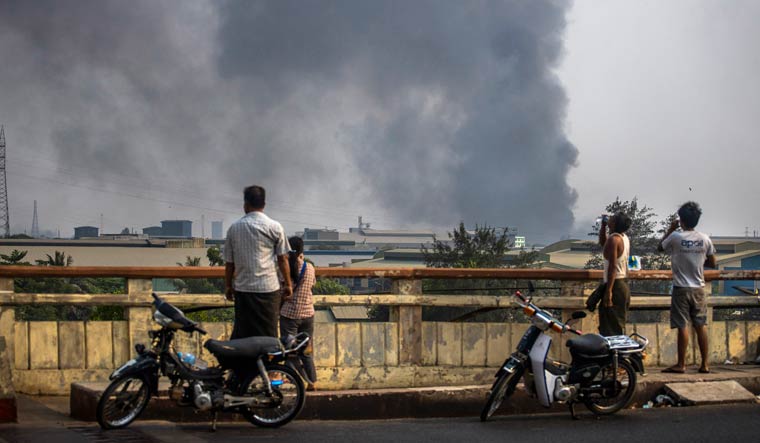The UN food agency on Tuesday said the rising food and fuel prices in Myanmar since the military coup on February 1, is weakening the ability of poor families to feed themselves.
Myanmar has been in a state of turmoil since February 1, when the military ousted its leader Aung San Suu Kyi. Protestors have been taking to the streets, demanding Suu Kyi’s release. Over 183 protesters have lost their lives in clashes with the security forces. The UNSC has condemned the military’s handling of the protests. The price of palm oil had risen by 20 per cent and that of rice went up by 4 per cent in places around Yangon and Mandalay since the end of February, the World Food Program said.
Clashes between the police and protestors on Monday saw 20 protestors losing their lives.
“These rising food and fuel prices are compounded by the near paralysis of the banking sector, slowdowns in remittances, and widespread limits on cash availability,” the WFP told Reuters. Myanmar had been one of the poorest nations in Asia, but, the economy started to boom since the military began to withdraw from politics about a decade ago.
WFP also said that the price of fuel had risen by 15 per cent since February 1. The military leaders, on March 9, cancelled licenses of five media organisations— all of them had been covering the protests extensively.
“Many people are already reeling from the impact of Covid-19. There had already been, before this political crisis, factory closures and many of the poorest had lost their jobs due to lockdowns in their neighbourhoods, and there had been declining remittances from abroad,” Stephen Anderson, the WFP representative for Myanmar told The Guardian.
As a result of the protests, the economy of the nation has been affected, with both the banking and transport sectors taking a hit.




